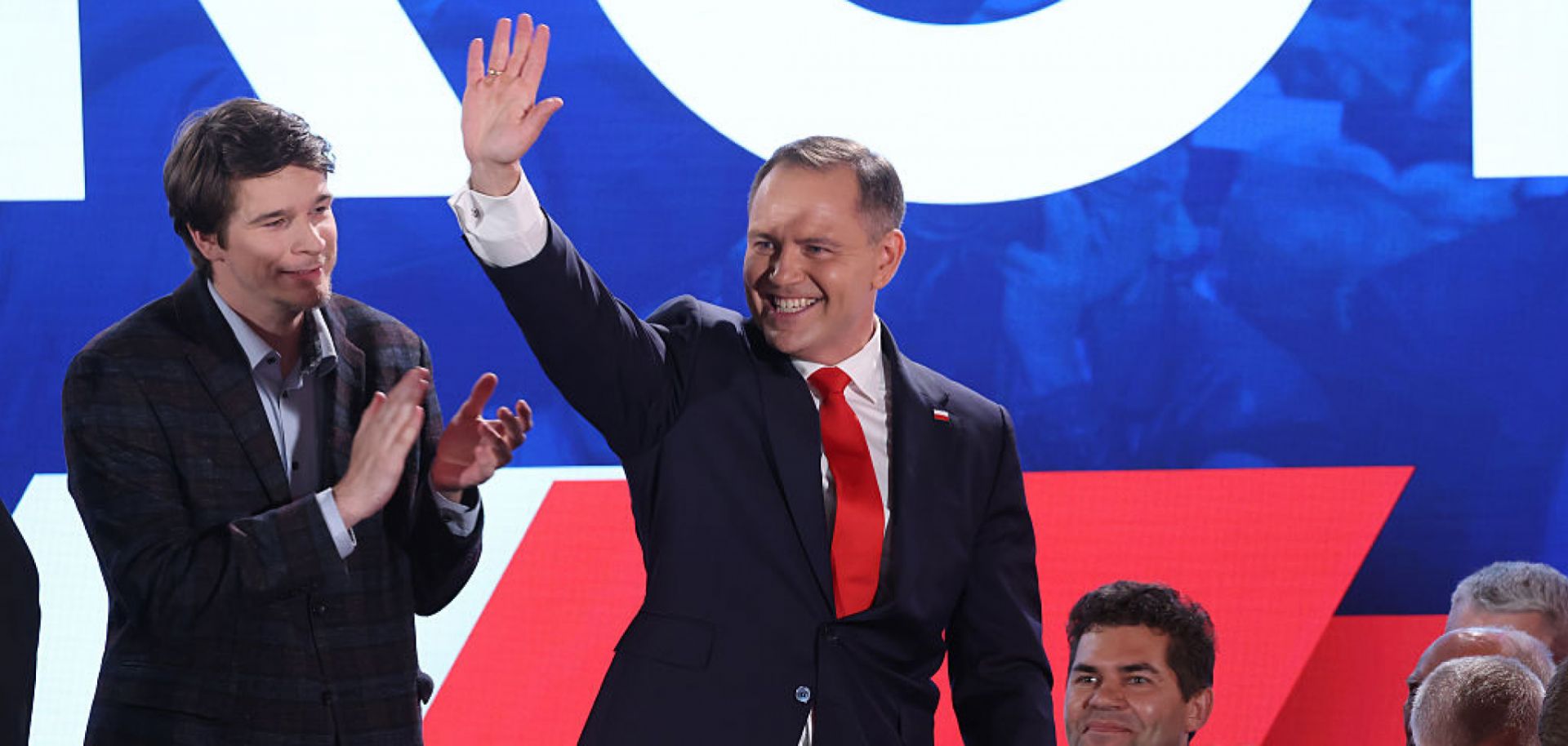Right-wing opposition candidate Karol Nawrocki's victory in Poland's presidential election portends further institutional gridlock, political polarization and policy uncertainty in Warsaw, which will sustain foreign policy incoherence and could undermine Poland's long-term economic outlook. Nawrocki, who formally ran as an independent but was backed by the national-conservative Law and Justice (PiS) opposition party, won Poland's presidential runoff on June 1 with 50.9% of the vote, narrowly defeating liberal Warsaw Mayor Rafal Trzaskowski from Prime Minister Donald Tusk's Civic Coalition, who secured 49.1% of the vote. Trzaskowski had won the first round of the presidential election on May 18 with 31.4% of the vote, while Nawrocki came in second with 29.5%. But despite trailing behind Trzaskowski throughout the entire campaign, as well as in pre-runoff polls, Nawrocki surged ahead by capturing the bulk of support from voters who had backed far-right libertarian candidate Sławomir Mentzen of the Confederation party, who placed...

